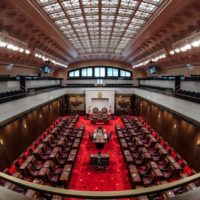News
Legislation on traveller privacy advances in Senate
Bill S-7 to be studied by the Standing Senate Committee on National Security and Defence.
Legislation to safeguard traveller privacy and rights in the examination of cellphones and laptops, while maintaining border security, has been referred to a Senate committee for further study after completing second reading.
Bill S-7 proposes to create a legislative framework under which the Canada Border Services Agency and United States preclearance officers operating in Canada can examine devices. It comes in response to an Alberta Court of Appeal ruling that found that the lack of a legal threshold for the examination of personal digital devices under the Customs Act was unconstitutional.
“The screening and examination of people and goods at the border, including the examination of personal digital devices, are fundamental to maintaining border integrity and protecting the health, safety and security of everyone in Canada,” said Senator Gwen Boniface, sponsor of the bill in the Senate.
She emphasized that while personal digital device examinations are conducted sparingly and selectively, there is a high success rate.
“In 2021, the CBSA processed just under 19 million travellers and conducted approximately 1,800 personal digital device examinations. This represented an examination rate of less than 0.01 per cent or around 1 in every 10,000 travellers,” she said.
“However, over 27 per cent of the approximately 1,800 examinations of personal digital devices uncovered a regulatory contravention. This ranged from the discovery of prohibited goods posing a threat to public safety, including child pornography and other obscenities, to evidence of undervalued and undeclared goods.”
The Standing Senate Committee on National Security and Defence is now tasked with studying the bill.




















































